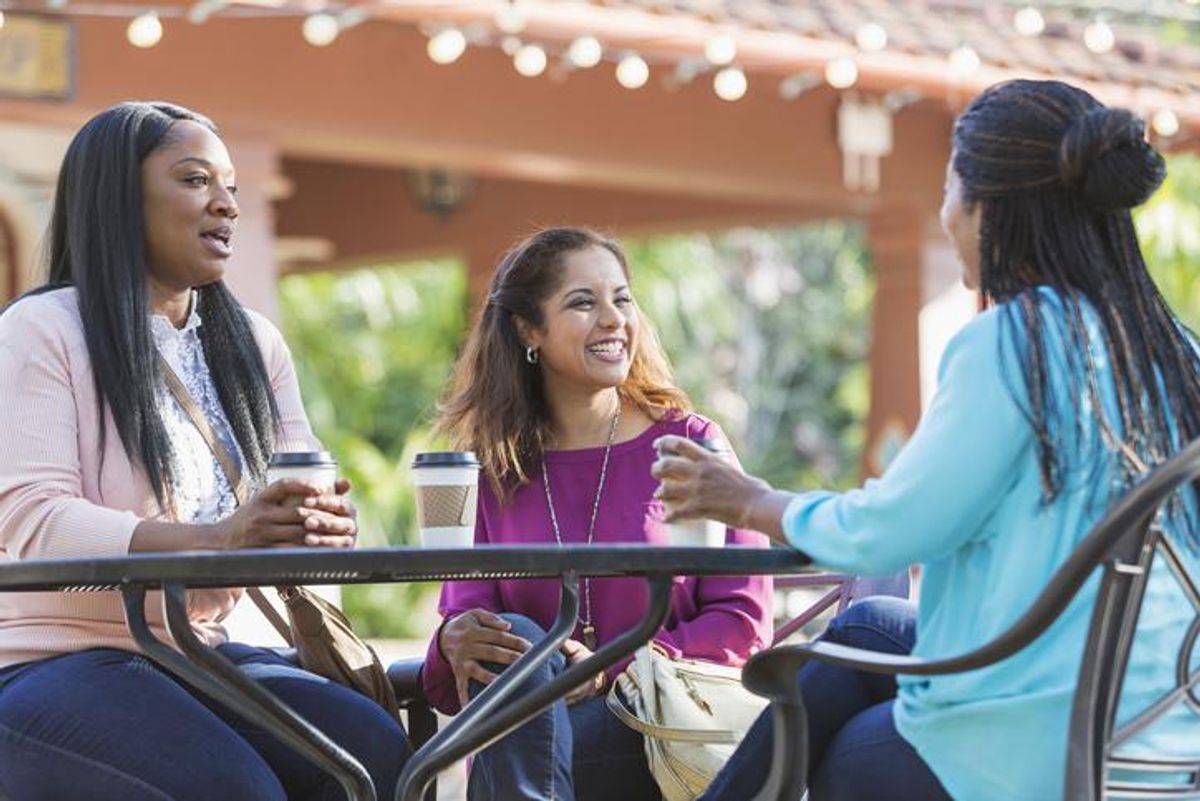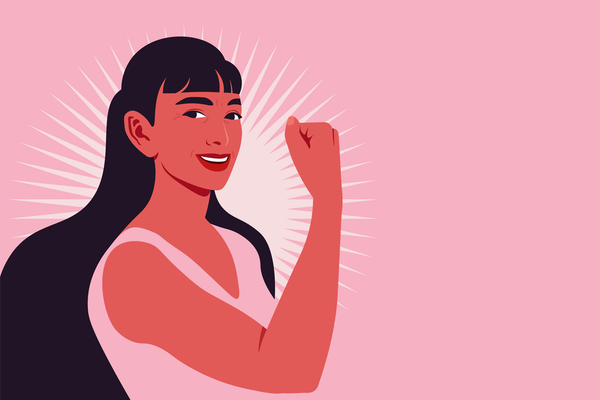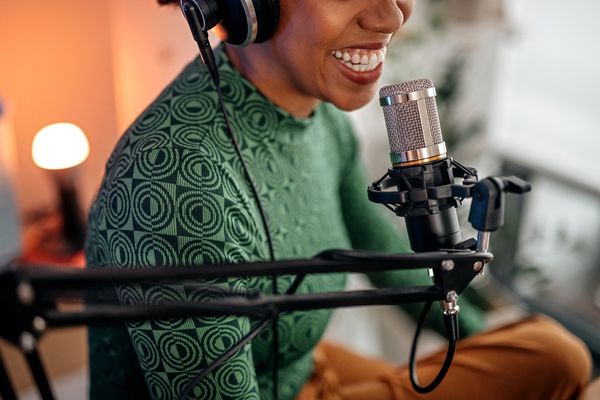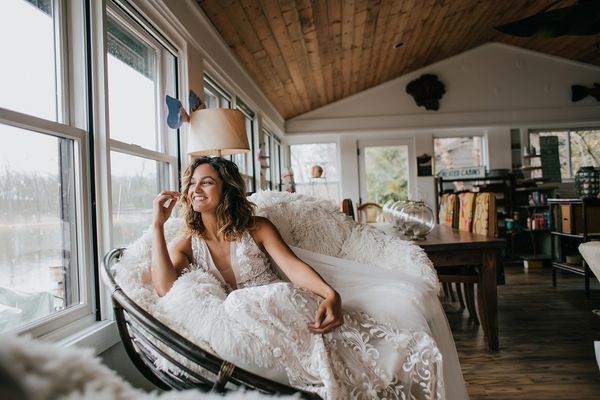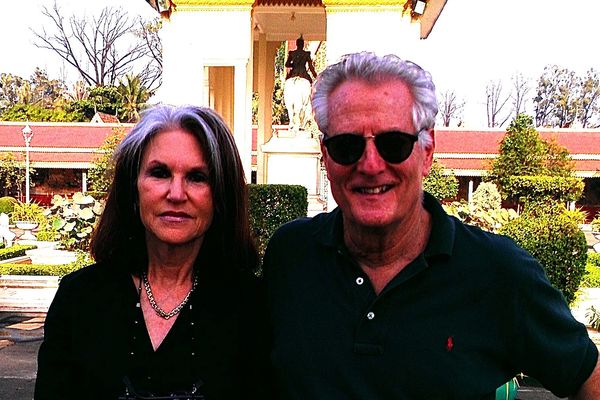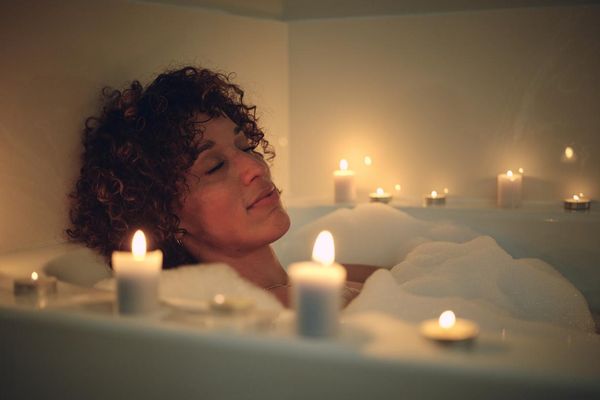August 1 is National Girlfriends Day.
When I was little, my aunt gave me her well-loved copy of Jane Walsh Anglund's book, “A Friend Is Someone Who Likes You.” I loved everything about it: its postcard-sized stature, the simplicity of the text, the whimsical illustrations of children in various states of togetherness, the message that anything can be a friend — a tree, a brook, the wind on your back, a boy, a girl, anyone — as long as they like you. To be fair (despite the author's claim of bearing fruit and cooling toes), there is no verifiable way to know if a tree or brook actually likes you. But in childhood, when it is sometimes hard to find our people, the option of camaraderie with a redwood tree or ocean tide was comforting.
I discovered my first BFF, Sara, at 7 years old. We rode the same school bus into the mountains where houses nest between acres of pine trees and dogs lunge at fences as you make your way home. We spent summers racing our Huffy two-wheelers down winding roads and perfecting our clubhouse (a tent pitched in the brush behind my shingled A-frame) for The Velvet Rainbows: membership of two, headbands and leg warmers required. Together we discovered grief and first love in the pages of Lurlene McDaniel novels, fear of sleep at the mercy of Wes Craven, and the fate of our futures through Cootie Catchers and the game MASH. (Though, to the chagrin of my 8-year-old-self, I did not end up in a mansion with nine children married to Ryan Cooper.)
Halfway through third grade, I arrived home from school intending to load my pockets with snacks for our daily ritual of afternoon Scooby Doo viewing but instead learned the unwelcome news that my mother had died of cancer. Landmines of sadness flooded me, but even as my timeline broke in two — life as I knew it forever rearranged — I raced down the road to be with my friend.
I didn't know then that my need for friendship when the world spun off its axis was backed by science. Studies show that people process negative emotions more effectively with help from others. Friends often rally together in difficult times, as Jaclyn Smith's did during her breast cancer treatment. But it's not only during life's major hurdles when social support is crucial. Having others reflect the world back to us — even in daily matters of work, family and child-rearing — is always beneficial to our mental health.
Women in particular benefit from friendship. "Talking through a problem with a friend helps us gain a better understanding of what's going on with ourselves and whatever we're struggling with,” explained Jennifer Payne, M.D., director of the Johns Hopkins Women's Mood Disorders Center and a member of HealthyWomen's Women's Health Advisory Council. “When people feel like they're going through something and they're the only one, it feels so much more devastating.”
Payne also noted, "Women are more likely to admit to friends when they're not doing well, so from a mental health perspective, friends encourage others to seek treatment when appropriate."
A recent study linked loneliness to higher stress levels, lower immunity and shorter life span. Researchers found loneliness as lethal as smoking 15 cigarettes per day.

How do we find our people if friendship is so vital to our quality of life? Sites like the popular dating app Bumble created a friend-finding feature called Bumble BFF, which as of January 2020, has made over 35 million connections. Groups like The Blue Thong Society, an international network of over 5,000 women, have chapters that meet regularly in cities across the U.S. to plan charitable events and outrageous outings, like their 2022 National Convention that took place aboard a Carnival “Fun Ship.”
One of my friends, Nicole, and I met over a decade ago IRL (in real life). We bonded when our youngest were in strollers, forgoing naps of any kind, as we hung on by a sleepless thread. I invited her over to talk about female friendship because I've experienced firsthand her rare dedication to the women in her life. As we chatted, our once-nocturnal-stroller-babies squealed in the pool, interrupting our conversation no less than 17 times, asking us to judge an "underwater-breath-holding-contest." Not unrelated, we agreed that sustaining friendship requires making an effort wherever it fits. If a friend has an hour free, you go to them to catch up. You make it work.
"For me," said Nicole, "it's about showing up and checking in enough that you know what's going on in their life.” She added, “With that foundation, you can dive into the deeper stuff quicker, so when you ask how someone is, they don't just say, ‘Fine.’” When asked what draws her to people, Nicole said, “When people can be vulnerable and say, ‘I'm crappy at this,’ when we can be real together, that's appealing to me."
While I still enjoy the shade of a tall redwood and dipping my toes in the Pacific, my friendships with women are the touchstones in my life. But I didn't find my people while worrying about how clean my baseboards were or how well my kids behaved. My truest friendships spawned from honest conversations on neighborhood street corners about what's messy and broken, expletive-filled text threads about our beloved spouses and children, impromptu playdates where our kids ran amuck and ate goldfish for dinner while we said, "Oh my God, yes!" "I'm here" and "I understand."
Unlike the family we're born into, friends are a choice we get to make again and again in an ongoing loop of mutual affection. I think Jane Walsh Anglund was onto something — maybe it is as simple as saving a seat on the school bus, breaking a cookie in half, putting your arm around someone whose world has spun off its axis and watching a favorite show together. Maybe friendship, at its core, is two people who just really like each other.
- What Do Your Friends Mean to You? - HealthyWomen ›
- Girls' Trips Really Are Good for Your Health - HealthyWomen ›
- Good Friends Are Good for Your Health. Here's Why. - HealthyWomen ›
- With a Little Help from Our Friends - HealthyWomen ›
- Why Friendships Are So Important - HealthyWomen ›

